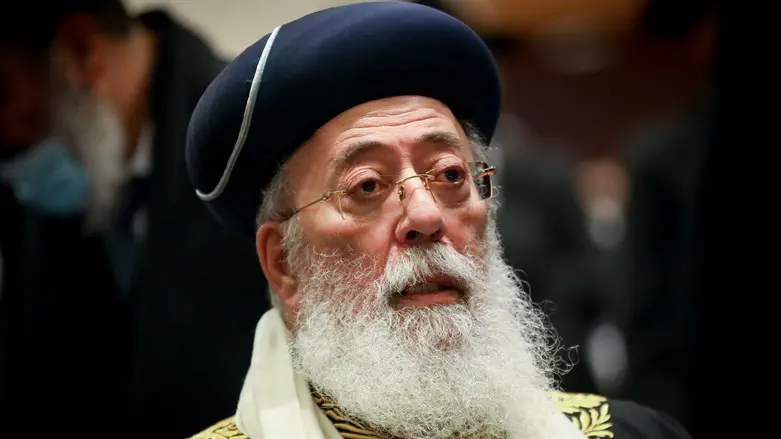
Today (Tuesday) the Supreme Court issued a conditional order instructing the state to explain why it is not prosecuting the Chief Rabbi of Jerusalem, Rabbi Shlomo Amar.
The order was issued after Rabbi Amar spoke out against the Reform community, the LGBTQ and Women of the Wall, contrary to the disciplinary law to which he is bound as city Rabbi.
The Sephardic Chief Rabbi of Israel, Rabbi Yitzhak Yosef, commented on the Supreme Court's order: "The Supreme Court’s interference in the freedom of speech of rabbis who fulfill their duties and act in accordance with their obligations, and by virtue of their rabbinic duties, is unacceptable."
Rabbi Yosef backed Rabbi Amar: "The statement made by Jerusalem’s Chief Rabbi Amar is by virtue of his position as a Rabbi and his duty was to express his opinion without fear. I call on the Supreme Court to retract this ruling and allow freedom of expression for Rabbis in order to fulfill their duties."
Israel's Ashkenazi Chief Rabbi, Rabbi David Lau, responded: "The ruling given today is sad and disappointing. It is important to understand that every Rabbi has the right and duty to express his position, subject to Jewish law. Attempts to threaten Rabbis through spiteful petitions will not weaken their spirits. Any attempt to interfere in the halakhic judgment of Rabbis will not succeed."
"I am sending support to my dear colleague, Rabbi Shlomo Moshe Amar, and emphasizing that it is clear to everyone that halachic judgment will remain only under the auspices of the Rabbis," added Rabbi Lau.
The petition submitted by the Reform movement, cited a number of quotes by Rabbi Amar, which according to the petitioners, require that the Rabbi be brought for disciplinary proceedings due to "improper behavior of a public servant.”
